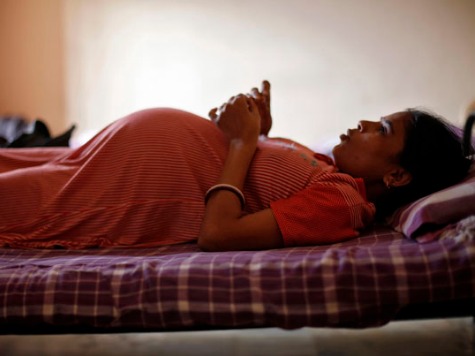Dr. Joanna Rose, who was conceived via anonymous donor-sperm in the UK, has criticized the surrogacy process, saying that it ignores the rights of children.
In a radio interview Wednesday, Rose said that there has been a concerted effort to withhold genetic information from the offspring of reproductive technology.
“One of the things that these clinics tended to do,” she said, “was as soon as donor offspring wrote and asked for information about where they came from, they would destroy them. Most of my friends have been told that their records have been destroyed in fires or some nonsense.”
Dr. Rose won a human rights case in the English High Court in 2002, which forced the British government to acknowledge the significance of the genetic, as well as the legal identity of donor offspring.
Rose said she had been deprived of important information about her genetic make-up which left gaps in her family’s medical history. “I carry genes and a medical history I don’t have access to,” she said.
Rose denounced the situation in England where there is a push to recognize “the right to have a family by any means.” In this climate, she said, “it is very difficult to criticize how any child is created, even though in the long run there is an incredible amount of loss intentionally factored into that child’s life.”
The focus on adults’ “right” to a child, end up trampling the rights of children. “You know it’s really sad,” Rose said. “There’s a strong, strong push to get more and more people to donate eggs, to donate sperm. It’s defined as a ‘crisis’ in England where there’s a shortage of donated sperm and eggs.”
The problem is, Rose stated, that “you really want people to grow up believing that the children you conceive matter, and that who you conceive with matters, and that you want to raise those children in the best ways you can.”
Surrogacy does away with all this. “You only relinquish your right to know and love your children as a last resort in a terrible crisis,” Rose said.
According to Rose the word “donor” is misleading because most sperm is paid for, making sperm “vendor” a more accurate description.
“You’ve got this massive business, huge amounts of money and a very vocal body of people who want access to this,” Rose said. “And obviously the children don’t have a voice at that time.”
“And even when they grow up and become adults it is very, very difficult to actually have a say. Often you have really offend the family you were raised in to actually form your own position and talk about your own needs and rights. And it’s really a fraught dynamic to be born into,” Rose said.
In a warning to Ireland, whose Supreme Court ruled favorably on surrogacy last week, Rose said she wanted “to alert people to the fact that you cannot presume that either the commissioning parents nor the industry, or even the Government, on their own, are going to protect the rights of the children of reproductive technologies.”
“Please,” Rose said, addressing Irish legislators, “remember international human rights and that the rights of the child need to be paramount. It’s not about child production; it’s about child protection.”

COMMENTS
Please let us know if you're having issues with commenting.